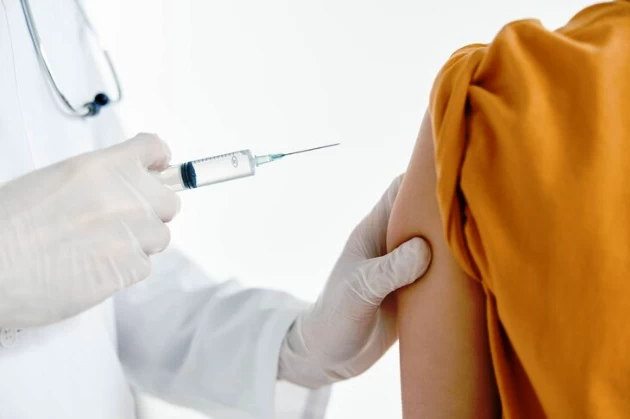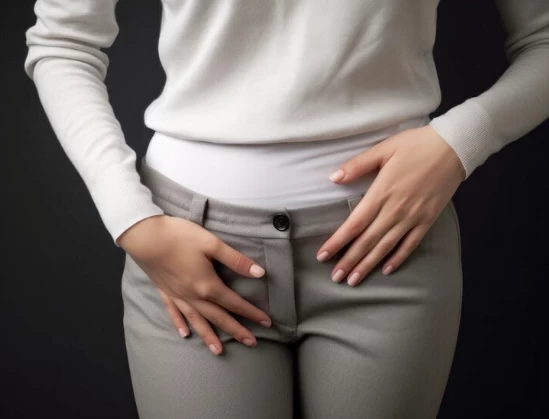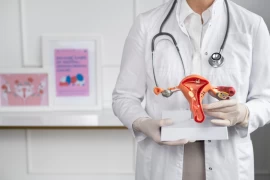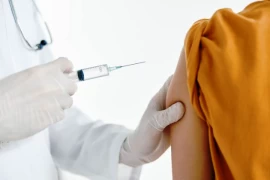
Human Papillomavirus (HPV) Vaccine: A Crucial Step for Women's Health
- Human Papillomavirus (HPV) Vaccine: A Crucial Step for Women's Health
- What is HPV?
- What is the Scope of HPV's Danger?
- What is the HPV Vaccine and How Does It Work?
- Importance and Advantages of the HPV Vaccine:
- How is the HPV Vaccine Administered?
- Conclusion:
In today's world, significant strides are being made in women's health with advancements in science and medicine. One such step is the Human Papillomavirus (HPV) vaccine. HPV is a sexually transmitted virus that serves as a source of infection affecting numerous women worldwide. The HPV vaccine is an effective preventive measure developed to protect women's health and prevent issues arising from sexually transmitted infections.
What is HPV?
HPV (Human Papillomavirus) is a general term for a group of viruses, including several types that affect human skin and mucous membranes. HPV is a group of viruses that can be transmitted through sexual contact and is one of the most common sexually transmitted infections.
What is the Scope of HPV's Danger?
HPV has hundreds of different types, some of which can cause warts on the genitalia, while others are associated with cancer. High-risk types, in particular, can contribute to the development of cancer in areas such as the cervix, anus, penis, vagina, vulva, and oropharynx (the back of the throat). While the body's immune system can control most HPV infections, persistent infection and evasion of the immune system in some cases can lead to abnormal cell changes, eventually progressing to cancer.
What is the HPV Vaccine and How Does It Work?
The HPV vaccine contains weakened or inactivated virus particles or proteins that stimulate the immune system against HPV. This vaccine encourages the body to defend itself against HPV, significantly reducing the risk of infection. It is generally recommended for young girls and women but may also be suitable for males in certain cases.

Importance and Advantages of the HPV Vaccine:
- Reduces the Risk of Cervical Cancer: The HPV vaccine is particularly effective in reducing the risk of cervical cancer, a lethal type of cancer affecting women worldwide.
- Prevents Genital Warts: The vaccine significantly reduces the likelihood of developing genital warts, contributing to the prevention of sexually transmitted infections.
- Contributes to Public Health: Widespread use of the HPV vaccine can help decrease the prevalence of sexually transmitted infections and related issues in the community.
- Provides Safe and Effective Protection: HPV vaccines are developed based on scientific research and have proven safety. The vaccine offers effective protection against sexually transmitted infections.
How is the HPV Vaccine Administered?
The HPV vaccine is typically administered through a series of injections. The vaccine aims to strengthen the immune system against the Human Papillomavirus (HPV) and provide protection against sexually transmitted infections. Here are general details about the administration of the HPV vaccine:
- Number of Doses: The HPV vaccine is usually administered in a series of injections, typically consisting of two or three doses, which may vary depending on the vaccine type and age.
- Timing of Administration: The vaccine is generally initiated at a young age, particularly recommended for children and young individuals aged 11-12. However, it is also suitable for young women up to 26 years old and young men up to 21 years old.
- Injection Sites: HPV vaccines are typically administered into the deltoid muscle of the upper arm. A healthcare professional, such as a doctor or nurse, usually administers the vaccine.
- Vaccine Dosing Intervals: Vaccines are typically administered at specific intervals. The second dose is given a few months after the first, and the third dose is administered later if necessary. Dosing intervals may vary depending on the HPV vaccine used.
- Vaccine Side Effects: HPV vaccines are generally considered safe, but like any vaccine, they may have some side effects. Common side effects include mild pain, redness, or swelling at the injection site. General symptoms such as mild fever, headache, or fatigue may also occur. These effects are usually short-lived and mild.
- Post-Administration Monitoring: Following vaccination, a healthcare professional typically observes the individual for a period to monitor for potential emergencies or allergic reactions.
It is important to note that specific information regarding vaccine administration may vary based on an individual's health status and local health authority recommendations. Therefore, consulting with a healthcare professional is essential when making decisions about vaccination.
Conclusion:
The HPV vaccine represents a crucial step in preserving women's health and preventing sexually transmitted infections. This vaccine should be administered at a young age to reduce the risk of infection and provide protection against cervical cancer and genital warts. Healthcare professionals play a vital role in raising awareness among women and providing information about the advantages of the vaccine, contributing to the prevention of the spread of sexually transmitted infections in the community. Remember that a healthy society is achievable through informed health decisions by individuals.

Op. Dr. Sami Şahin
Gynecologist and Obstetrician



